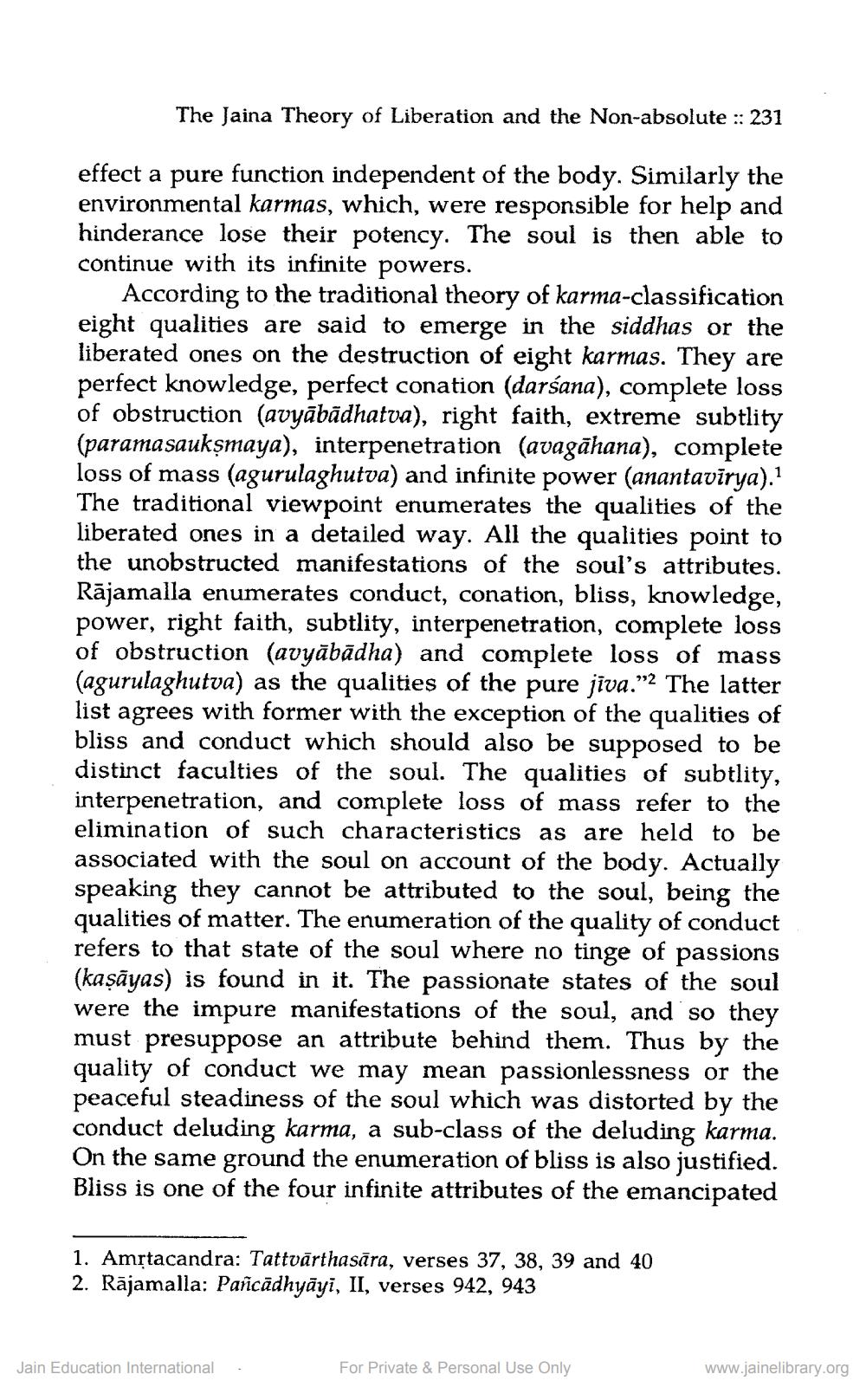________________
The Jaina Theory of Liberation and the Non-absolute :: 231
effect a pure function independent of the body. Similarly the environmental karmas, which, were responsible for help and hinderance lose their potency. The soul is then able to continue with its infinite powers.
According to the traditional theory of karma-classification eight qualities are said to emerge in the siddhas or the liberated ones on the destruction of eight karmas. They are perfect knowledge, perfect conation (darśana), complete loss of obstruction (avyābādhatva), right faith, extreme subtlity (paramasaukṣmaya), interpenetration (avagahana), complete loss of mass (agurulaghutva) and infinite power (anantavirya).1 The traditional viewpoint enumerates the qualities of the liberated ones in a detailed way. All the qualities point to the unobstructed manifestations of the soul's attributes. Rājamalla enumerates conduct, conation, bliss, knowledge, power, right faith, subtlity, interpenetration, complete loss of obstruction (avyābādha) and complete loss of mass (agurulaghutva) as the qualities of the pure jiva." The latter list agrees with former with the exception of the qualities of bliss and conduct which should also be supposed to be distinct faculties of the soul. The qualities of subtlity, interpenetration, and complete loss of mass refer to the elimination of such characteristics as are held to be associated with the soul on account of the body. Actually speaking they cannot be attributed to the soul, being the qualities of matter. The enumeration of the quality of conduct refers to that state of the soul where no tinge of passions (kaṣāyas) is found in it. The passionate states of the soul were the impure manifestations of the soul, and so they must presuppose an attribute behind them. Thus by the quality of conduct we may mean passionlessness or the peaceful steadiness of the soul which was distorted by the conduct deluding karma, a sub-class of the deluding karma. On the same ground the enumeration of bliss is also justified. Bliss is one of the four infinite attributes of the emancipated
1. Amṛtacandra: Tattvarthasara, verses 37, 38, 39 and 40 2. Rājamalla: Pañcādhyāyi, II, verses 942, 943
Jain Education International
For Private & Personal Use Only
www.jainelibrary.org




